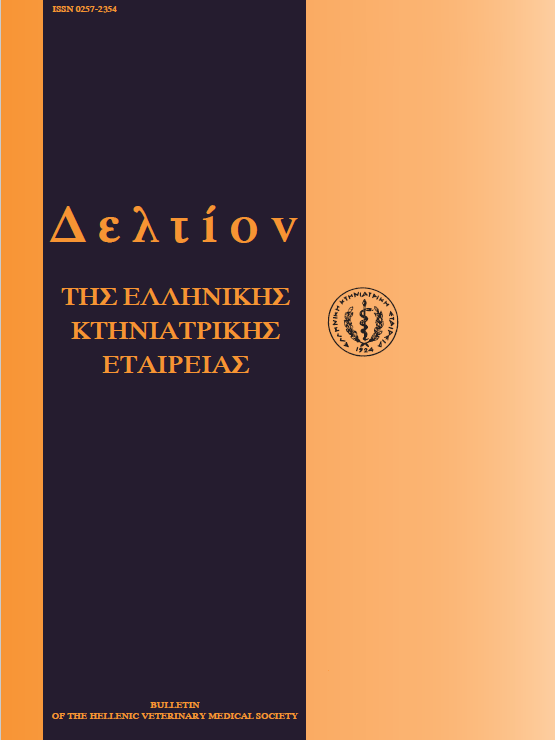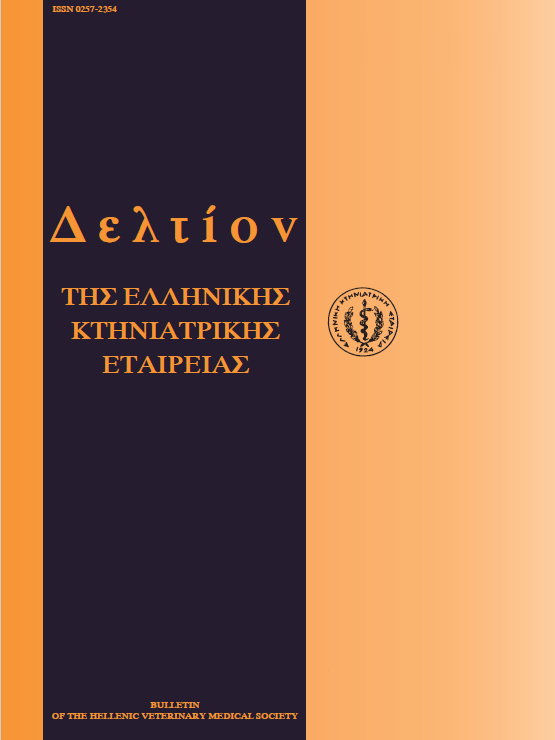Clinical and subclinical bovine mastitis in area of Kilkis
Аннотация
In this study 216 milk samples from equal number of quarters were examined. The results from microbiological examination and the performed California test revealed that 82 samples (38%) were collected from quartres with subclinical mastitis. Coagulase-negative staphylococci were the most frequent pathogens isolated from the examined milk samples, representing 47.5% of the total isolated strains. Sensitivity test of the strains to certain antimicrobials showed higher performance of gentamycine (90.9% of the cases). On a descending sequence cephalotin (75%), oxalinique acid (63.6%) and ampicilline (54.2%) were the antimicrobials to which sensitivity of the strains was higher than 50%. On the contrary, tetracycline, tincomycine, erythromycine and penicilline G performance was lower than 50%.
Article Details
- Как цитировать
-
ILIADIS (Ν. ΗΛΙΑΔΗΣ) N., PETRIDOU (Ε.N.ΠΕΤΡΙΔΟΥ) E. N., & FOUKOS (Α. ΦΟΥΚΟΣ) A. (2018). Clinical and subclinical bovine mastitis in area of Kilkis. Journal of the Hellenic Veterinary Medical Society, 48(1), 32–36. https://doi.org/10.12681/jhvms.15791
- Выпуск
- Том 48 № 1 (1997)
- Раздел
- Research Articles

Это произведение доступно по лицензии Creative Commons «Attribution-NonCommercial» («Атрибуция — Некоммерческое использование») 4.0 Всемирная.
Authors who publish with this journal agree to the following terms:
· Authors retain copyright and grant the journal right of first publication with the work simultaneously licensed under a Creative Commons Attribution Non-Commercial License that allows others to share the work with an acknowledgement of the work's authorship and initial publication in this journal.
· Authors are able to enter into separate, additional contractual arrangements for the non-exclusive distribution of the journal's published version of the work (e.g. post it to an institutional repository or publish it in a book), with an acknowledgement of its initial publication in this journal.
· Authors are permitted and encouraged to post their work online (preferably in institutional repositories or on their website) prior to and during the submission process, as it can lead to productive exchanges, as well as earlier and greater citation of published work.




